racial profiling

Despite the frequency, I have made the decision to allow myself to feel the anger and pain that comes with every example of community profiling, because desensitization feels far more dangerous to me. While this is just a reality for black and brown people, these examples of back-to-back national headlines help provide justification for our outrage and fear. They demonstrate that nowhere seems safe for people of color, and instances like these happen everywhere — including in our own neighborhoods. What cannot be denied is that there is a common thread behind these encounters: A scared white person. For all who feel threatened by even the mere presence of people of color, I have one simple request: Please stop calling the police on us.
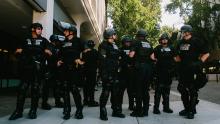
“It is an atrocity that an unarmed young man was shot at twenty times in his own backyard and shows the urgent need in these times for intervention against police misconduct. We will call for a complete and thorough investigation into this young man’s death," Rev. Al Sharpton said in a statement.
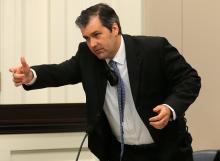
On April 15, 2015, Slager tased and shot Scott five times in the back. A video from witness Feiden Santana surfaced, showing the fatal shooting.

As President Trump has pointed out, others have made bad use of that same power, favoring cronies (Scooter Libby) and benefactors (Marc Rich.) He is right about that. Both of those made my stomach turn. I was a federal prosecutor when President Clinton pardoned Marc Rich, and it was infuriating — rewarding a fugitive cut against everything I worked for. In pardoning former Maricopa County Sheriff Joe Arpaio, though, Trump has done something worse: The president has not only rewarded someone who is unrepentant, but he has celebrated the crime itself. When asked about the pardon, Trump said of Arpaio that “He’s done a great job for the people of Arizona, he’s very strong on borders, very strong on illegal immigration, he is loved in Arizona ...”

During the first few weeks of the Trump administration, we’ve seen increased pressure on Muslim and immigrant communities in the United States.
In the face of these threats, which Marvel superhero might be best equipped to defend the people, ideals, and institutions under attack? Some comic fans and critics are pointing to Kamala Khan, the new Ms. Marvel.

Brian Williams is an African-American trauma surgeon at Dallas’ Parkland Hospital. He was in charge of Parkland’s emergency room July 7 when seven officers arrived.
He choked back tears as he described to The Washington Post how three officers died at the hospital: “I think about it every day, that I was unable to save those cops when they came here that night.”
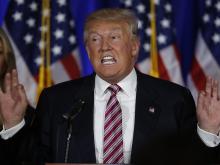
Donald Trump, who has proposed a moratorium on Muslim immigration into the United States and possible surveillance of mosques, is now talking about “profiling” Muslims as a response to terrorism.
“I think profiling is something that we’re going to have to start thinking about as a country,” Trump said on CBS’ Face The Nation.
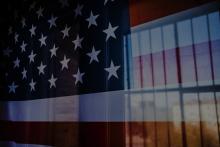
On Oct. 27, 1994 — 21 years ago today — the U.S. Department of Justice reported that the United States’ prison population had reached over 1 million people. By comparison, that’s the same size as San Jose, Calif.— the tenth biggest city in the US.
Today, the United States’ prison population is over 1.5 million — the size of Philadelphia, Pa., our nation’s fifth largest city.
Yet the size of our prison population — the largest in the world — is only part of the problem. Communities of color and poorer communities are disproportionally sentenced to prison — the result of systemic injustices including income inequality, school-to-prison pipelines, and racial profiling.
We mark many positive anniversaries here at Sojourners, but the work of justice also necessitates recognizing ongoing abuses of human dignity over time. So today, on the grim anniversary of 1 million people housed in our prison system, we choose to remember them and all those still behind bars. Here are ten articles we’re re-reading today about mass incarceration — and how to end it.
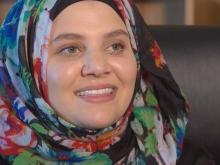
Fort Worth, Texas, native Amneh Jafari never expected to help spark an international movement.
But when the senior University of Texas Arlington psychology major saw a picture on the news showing Irving teen Ahmed Mohamed in handcuffs for bringing a homemade clock to MacArthur High School, it felt personal.
“It really saddened me,” Jafari said.
“I have younger siblings, and I felt like I was looking at them.”
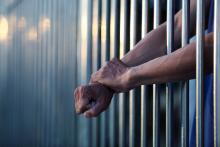
I HEAR A STIRRING, a rumbling. An awakening. Sometimes the sound is so faint, I worry it’s my imagination, my optimism getting the best of me. I pause, listen, and wait. Here it comes again. I want to rush to my window, fling it open, stick my head way out, and look around. Is it happening? For real this time? Is the sleeping giant finally waking up?
God knows we’ve slept too long.
Many of us—myself included—slept through a revolution. Actually, it was a counterrevolution that has blown back much of the progress that so many racial justice advocates risked their lives for. This counterrevolution occurred with barely a whimper of protest, even as a war was declared, one that purported to be aimed at “drugs.”
Really, the war took aim at people—overwhelmingly poor people and people of color—who were taken prisoner en masse and then relegated to a permanent, second-class status, stripped of basic civil and human rights such as the right to vote, the right to serve on juries, and the right to be free from legal discrimination in employment, housing, and access to education and public benefits. Branded “criminals” or “felons,” millions of people discovered that the very rights supposedly won in the civil rights movement no longer applied to them.
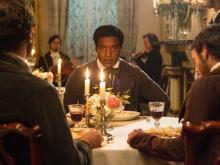
The most controversial sentence I ever wrote, considering the response to it, was not about abortion, marriage equality, the wars in Vietnam or Iraq, elections, or anything to do with national or church politics. It was a statement about the founding of the United States of America. Here’s the sentence:
"The United States of America was established as a white society, founded upon the near genocide of another race and then the enslavement of yet another."
The comments were overwhelming, with many calling the statement outrageous and some calling it courageous. But it was neither. The sentence was simply a historical statement of the facts. It was the first sentence of a Sojourners magazine cover article, published 26 years ago titled “America’s Original Sin: The Legacy of White Racism.”
An extraordinary new film called 12 Years a Slave has just come out, and Sojourners hosted the premiere for the faith community on Oct. 9 in Washington, D.C. Rev. Otis Moss III was on the panel afterward that reflected on the film. Dr. Moss is not only a dynamic pastor and preacher in Chicago, but he is also a teacher of cinematography who put this compelling story about Solomon Northup — a freeman from New York, who was kidnapped and sold into slavery — into the historical context of all the American films ever done on slavery. 12 Years is the most accurate and best produced drama of slavery ever done, says Moss.
In her New York Times review, “ The Blood and Tears, Not the Magnolias,” Manohla Dargis says, 12 Years a Slave “isn’t the first movie about slavery in the United States — but it may be the one that finally makes it impossible for American cinema to continue to sell the ugly lies it’s been hawking for more than a century.” Instead of the Hollywood portrayal of beautiful plantations, benevolent masters, and simple happy slaves, it shows the utterly brutal violence of a systematic attempt to dehumanize an entire race of people — for economic greed. It reveals how morally outrageous the slave system was, and it is very hard to watch.
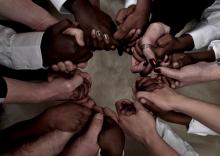
Death is horrible enough. But systematic injustice — one that allows white boys to assume success, yet leads black boys to cower from the very institutions created to protect our own wellbeing — is a travesty. Listen to the stories from Saturday and Sunday nights, of 12-year-old black boys who asked to sleep in bed with their parents because they were afraid. If black youth in America can’t rely on the police, the law, or their own neighborhood for protection — where can they go?
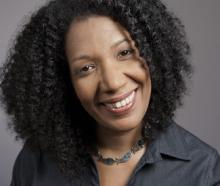
Editor’s note: The following written testimony was submitted by Lisa Sharon Harper, on behalf of Sojourners, to be included in today’s U.S. Senate Committee on the Judiciary Subcommittee on the Constitution, Civil Rights, and Human Rights Hearing on “Ending Racial Profiling in America.”
As a Christian organization, Sojourners is compelled to consider the pattern and institution of racial profiling practices abhorrent and a direct threat to the maintenance and cultivation of the inherent dignity of every human being living and working within the boundaries of the United States. We believe every human being is made in the image of God and therefore equally worthy of protection of human and civil rights under the law. Racial profiling not only threatens the psychological and emotional well-being of targeted communities. As demonstrated above, the practice can lead to death.
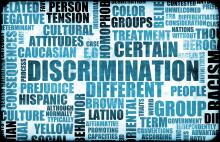
This is largely addressed to my white brothers and sisters, particularly those in the church. I’m a white woman, was raised in an almost all-white town and have spent most of my life in predominately white faith communities. White people don’t like to talk about racism. We like to pretend it isn’t real and we don’t benefit from it. This has got to stop.
When Barack Obama was elected president, there was all kinds of talk about the United States being a post-racial society. This was, and is, total BS. It was (and is), however, a really nice bedtime story us white folk can tell to our kids and to ourselves. Rest easy, everyone. Racism is dead. No need to worry about race anymore. Go to sleep, sleep. sleep …
Every once in a while, we (by we I mean my white brothers and sisters) wake up from our little racism-doesn’t-exist slumber. When a celebrity says something out loud that we know is something you just don’t say (inner voices, white brethren) we get all up in arms and demand an apology. Then we go back to sleep. While we sleep, some of us clutch our purses on the train, lock our doors when we drive through minority neighborhoods or cross the street when groups of dark-skinned men stand in our path. We tell ourselves that we are doing it for our own safety, if we realize we are doing it at all. We make assumptions about people’s intelligence, responsibility, work ethic and a whole host of other things based on the color of a person’s skin. I do not exclude myself from this description. I do it too.